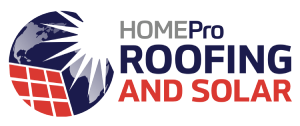What is a Power Purchase Agreement PPA?
When we discuss purchasing a solar system, it can be either in the form of an outright cash purchase, or some type of financing. Many people believe in true “ownership”, versus a third party owning the system on their rooftop (more discussed about that below).
Advantages of purchasing a Solar System
- Many people in this country believe (as my uncle used to say) “cash on the barrel” and ownership. Purchasing means true ownership and no one is looking over your shoulder as happens with leasing and PPA’s (see below).
- There is a HUGE tax incentive from the Federal Government to go solar, meaning if you have taxable income, you can reduce you are taxes with the investment tax credit of 30% of the cost of the solar system.
- Buying makes the most economic sense and the lowest cost of power.
- Freedom to take control back from the rising costs of power an unlimited control over rate hikes.
- The choice in determining what type and brand of solar panels an inverters you choose (unlikely seen in PPA’s where the provider makes the ultimate choice)
- No concern over transferability when selling your home
- Solar increases home values.
Disadvantages of purchasing a solar system
- You must write a large check or take out a loan to purchase the system.
- If you do not have a tax appetite or the ability to use the investment tax credit you in essence will be paying for the full amount of the system not the full amount less 26%.
- You bear responsibility for the system. Your solar contractor is responsible for the workmanship and installation. Solar systems have no moving parts, minimizing the chance of failure. High-quality panels and inverters further reduce this risk.
What is a solar Lease?
In the mid-90s, solar adoption was limited to those with cash or borrowing ability. Solar leasing resembled car leases: low initial payment, fixed term, and returning the car at the end. Lease terms typically last 20 to 25 years with a fixed payment. Options include fixed rates or slightly escalating rates (around 2-3%). Upfront payment for leases is usually zero, with the company covering guarantees, insurance, and maintenance. With a solar lease, the lessor gains system ownership and tax benefits. SunPower and SunRun are popular lease providers.
Advantages of Leasing
- A major lease benefit is avoiding large upfront costs. Many leases offer zero down payment, resulting in monthly payments lower than utility bills. This can lead to monthly savings without any initial investment.
- In many instances, the lessor is responsible for maintaining, insurance, and making sure the panels are producing as the least agreement states.
Disadvantages of Leasing
- One potential disadvantage of a solar lease is that there very long-term contracts this means you're going to be tied up paying a monthly payment to the lessor of the solar panels.
- A solar lease may pose challenges if you sell your home during the lease term. Typically, the lessor requires the new homebuyer to take over the lease. However, issues arise if power prices decrease or solar panel costs drop, making current lease prices cheaper than past ones.
What is a Solar Power Purchase Agreement PPA?
PPA stands for Power Purchase Agreements. A third party purchases and installs the solar system, and you pay them for the power it generates over a fixed period, typically 25 years. Similar to a lease, there's usually no upfront payment. The third party also monitors, maintains, and insures the solar system. Many liken a PPA to dealing with your local utility company: no upfront payment, just paying for the power you use. Your bill may fluctuate throughout the year, higher in summer for things like pool pumps, lower in winter. With a PPA, you only pay for the power your system generates. As with a lease, the third party owns the system and benefits from any tax advantages. Sunrun and Sungevity are well-known companies that use the PPA model.
Advantages of a Solar Power Purchase Agreement PPA
- The advantages of a solar PPA are like that of a solar lease, most notably ZERO upfront.
- With a PPA, you are only paying for the power your system actually produces, so if your system goes down from any reason it is up to the 3rd party provider to fix the system at their expense.
- If your PPA has an escalator, it will generally go up at a slower rate than your local utility provider.
- Different from a lease, where you are actually renting the equipment in a lease, the PPA provides additional protection because you are only purchasing the power it produces.
- The advantages of a solar PPA are like that of a solar lease, most notably ZERO upfront.
- With a PPA, you are only paying for the power your system actually produces, so if your system goes down from any reason it is up to the 3rd party provider to fix the system at their expense.
- If your PPA has an escalator, it will generally go up at a slower rate than your local utility provider.
- Different from a lease, where you are actually renting the equipment in a lease, the PPA provides additional protection because you are only purchasing the power it produces.
Disadvantages of a Solar Power Purchase Agreement PPA
- Similar disadvantages are for a solar PPA that are for a lease, most notably they are long term agreements that a purchaser of a home might not want to take over.
- A challenge that many people face is the cost of the power the system produces is high in the summer and low in the summer, and they are not able to have a levelized payment system they might be able to get with their local utility company.
